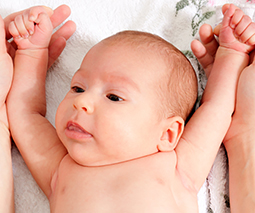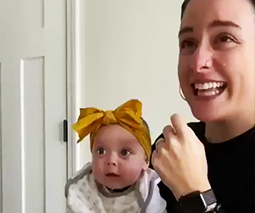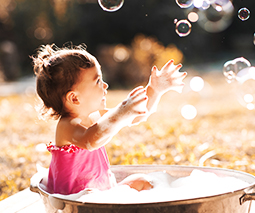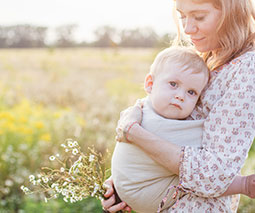How to care for your baby’s teeth and gums

Baby teeth might seem like a ‘trial run’, but looking after them is just as important as the permanent teeth that will follow.
- A guide to baby’s teething: Timing, symptoms and pain relief
- 13 telltale signs your baby is teething
- The TRUTH about teething (and teething gels and amber teething necklaces!)
The importance of looking after baby teeth
Dr Giulia D’Anna is the founder of iDental. She says baby teeth, also known as primary teeth, play a big part in a child’s development.
“Primary teeth are important for function and speech,” says Dr Giulia. “Without front teeth, your child will struggle with a lisp which will have an impact on reading and spelling. Without back teeth, nutrition can be a problem.”
Dr Giulia adds that baby teeth act as a place marker for secondary teeth to follow, making it essential for them to be looked after.
“One of the most important reasons to keep baby teeth in position is that they maintain the space we need for the new secondary or permanent teeth to come through in the correct position,” she says.
“When a tooth is lost too early, the spaces normally needed by the permanent teeth close, as the teeth either side of the space drift into this position. This can lead to unnecessary orthodontic problems later on when the teeth are much more crowded than they might have been by fixing and saving the baby tooth in the first place.”
How to care for baby and toddler teeth
1. Clean the gums
According to the Raising Children Network, dental care for babies can begin straight away. Using a clean, moist cloth, parents can wipe their baby’s gums daily.
2. Brush teeth twice daily
Teething can start at any time between four months and ten months. Once the teeth begin to show, brush with a soft toothbrush and water. Do not use toothpaste.
3. Visit the dentist
At around 12 months, parents should take their child for a dental check-up. Dr Giulia says there are two benefits to this. “First of all, the child will see the dental experience as a positive one as little is usually done in the first few visits aside from a general check of the teeth, some teeth counting games and a fun ride in the chair,” she says. “The second benefit of an early check is to detect developmental problems like tongue or lip tie, which can impair speech, and obviously to screen for decay or potential other dental concerns.”
4. Introduce low-fluoride toothpaste
At about 18 months you can introduce toothpaste. But as Dr Giulia points out, this should only be done when your child can reliably spit it out. “Toothpaste contains fluoride, and this is a great thing. However, some concerns can develop if your child is swallowing excessive amounts of toothpaste,” she says.
Simply, add a pea size amount of low-fluoride toothpaste to the brush, encouraging her to spit and not swallow.













